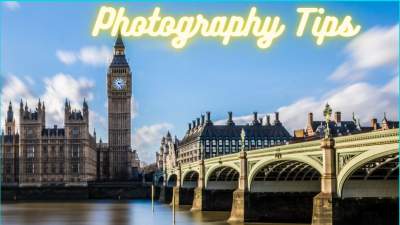Photography For Beginners
Photography is the art of capturing moments and memories, and it is one of the most fulfilling hobbies that one can indulge in. Whether it’s capturing your loved ones, landscapes, or travel destinations, photography can be an incredibly rewarding experience. But for beginners, mastering the art of photography can be a daunting task. In this blog post, we will share some essential beginner photography tips that will help you understand your camera and improve the quality of your photos.Understand Your Camera
The first step in mastering your camera is to understand what each setting does and how it affects the final image. Reading your camera manual is the perfect place to start learning about your camera's various settings, such as exposure, aperture, shutter speed, and ISO. Understanding the technical aspects of photography, such as depth of field and perspective, takes time. But with practice, you can become familiar with these concepts and create stunning photos.
Photo Tips
Focus On Composition
In photography, the composition is everything. The composition is how all the elements in the frame come together to create the final image. There are various techniques you can use for composition, such as the rule of thirds, leading lines, and symmetry. Experiment with different techniques, and don't be afraid of breaking the rules. As you practice, you will begin to find your style and create compositions that are unique and stunning.
Use Natural Light
One of the most important aspects of photography is light. Natural light offers the most flattering and beautiful lighting conditions for photography. Shooting during the golden hour, which refers to an hour before sunset or an hour after sunrise, can produce stunning images with warm and soft light. Don't rely on the camera's flash as it can produce harsh, unflattering light. Learn to use natural light to your advantage and take advantage of the various lighting conditions available to you.
Shoot in RAW Format
When shooting in RAW format, your camera captures all of the information in the scene, allowing you to have more flexibility when editing. Shooting in RAW captures more details and highlights than shooting in JPEG format, making it easier to adjust the color, contrast, and sharpness of the image. RAW files take up more storage space than JPEG files, but the benefits of shooting in this format far outweigh the downside.
Understand Post-Processing
Post-processing is essential to digital photography. Even the most experienced photographers post-process their photos to enhance and fine-tune the final image. Adobe Lightroom and Photoshop are excellent tools for post-processing and offer a wide range of features to help you edit your photos. But, it's important to note that post-processing should complement your photography style and not be a substitute for a lack of skill or technique in photographing.Conclusion of Beginner Photography Tips
Mastering your camera and improving your photography skills takes time and effort. Practice is the key to becoming a better photographer. With the right techniques, composition, and post-processing, you can take your photography skills to the next level. Keep on practicing, and don't be afraid of experimentation. Remember that the more you practice, the more you will develop your style and take stunning photos. Happy shooting!

No comments:
Post a Comment
Thanks for your valuable comments and keeping touch sharing our posts from my PHOTO COLLECTION.